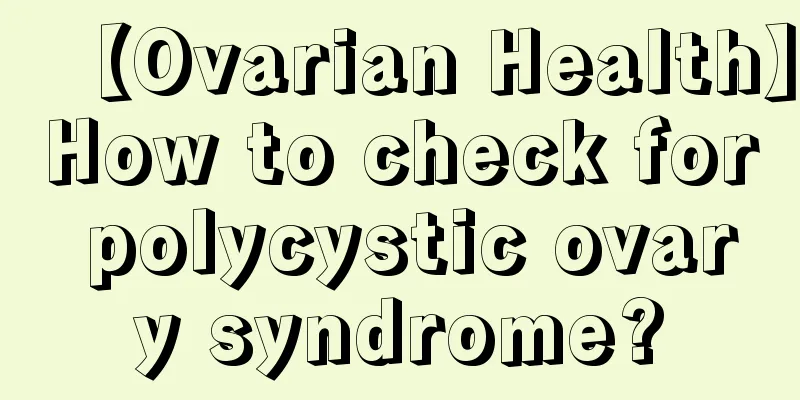What to do if vaginal wall hematoma occurs in parturients

|
If there is hematoma on the vaginal wall, women are advised to pay attention to it, especially postpartum women who are prone to this symptom. First of all, they should learn to eliminate tension and communicate with their doctors in time if there are any abnormal problems after delivery. (1) Eliminate tension. During the first stage of labor, the mother should relax her breathing and try to avoid holding her breath and pushing down to avoid compression and edema of the cervix. During the second stage of labor, abdominal pressure and the cooperation of pregnant women can be used to prevent the fetal head from being delivered too quickly, causing perineal tearing, and birth canal hematoma. (2) Observation of the labor process. If a woman experiences weak uterine contractions or slow labor during delivery, medical staff will promptly inject an appropriate amount of oxytocin to assist in delivery. If the mother has poor vaginal elasticity, a high perineum, perineal edema and congestion, or the fetus is too large, she should not be too nervous. The medical staff will perform an episiotomy to assist in delivery while protecting the perineum. (3) After the fetus and placenta are delivered, medical staff will strictly observe the condition of the mother's soft birth canal. If there are obvious bleeding spots at the injured site, the midwife will first ligate the wound to stop the bleeding and then suture it. When suturing, the length of the first stitch should exceed the top of the wound by 0.5 to 1.0 cm to prevent broken blood vessels from retracting or missing ligatures and causing hematoma. The length of the stitches should be moderate and the tightness should be appropriate. After the suturing is completed, the medical staff will once again check the soft birth canal and sutures for bleeding and swelling, and perform routine anal examinations and administer antibiotics to prevent infection. (4) If a parturient has developed a hematoma, and the soft birth canal mucosa is intact, medical staff will treat the condition based on the length of the hematoma. If the diameter of the hematoma is <4cm, No. 0 or No. 1 intestinal suture is generally used for continuous or intermittent sutures; if the diameter of the hematoma is >4cm, the vaginal opening needs to be cut open first, the blood clots need to be removed, and then layered sutures need to be performed; if the hematoma occurs at the original suture site, the medical staff will remove the sutures and clear the accumulated blood in time, and perform secondary hemostasis sutures. Finally, medical staff will provide timely fluid replacement, blood transfusion, anti-shock treatment and antibiotics to prevent infection according to the mother's blood loss. |
>>: What causes vaginal posterior wall relaxation?
Recommend
What does "take three and stop four" mean for azithromycin?
As a pediatric pharmacist, we often encounter par...
What nutrients does umbilical cord blood contain?
When it comes to the source of nutrition for babi...
4 months pregnant abdominal cramps and labor pains
Many people experience abdominal pain after pregn...
If these "strange things" grow on your skin, it's skin cancer! Huaxi doctors teach you how to identify
On our skin There are some problems more or less ...
How to treat premenstrual syndrome?
In fact, many women have mild PMS, which is not d...
Can pregnant women take grape seed capsules?
Grape seed capsules are a common health product i...
Dieting is harmful, it is easy to rebound and hurt your body
Losing weight is an enduring topic. There are man...
Can I drink whiskey during my period?
Whiskey is a type of alcohol. When it comes to al...
What should I do if my vagina has an odor after giving birth?
After a woman gives birth, her body needs a certa...
The efficacy and consumption of maca for women
What are the benefits and edible methods of maca ...
Are endometrial polyps serious?
Cervical polyps are multiple and diffuse. This is...
What to do if you have vaginal warts?
Vaginal warts are a common disease that can occur...
After giving birth, there is a bulge under the lumbar spine
After giving birth, the child has a bulge under t...
How many days of delayed menstruation is the most accurate blood test
When the menstrual period is delayed, we often wo...









